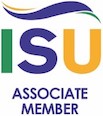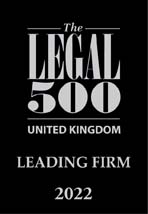
Legal 500, 2021
MFB has an excellent reputation in the commercial shipping market and the firm clearly places a heavy emphasis on working closely with its clients and understanding their business requirements.

News
Stolen freight/hire? The Court of Appeal looks at the duties of banks.
May 2 2019
As a firm we have over the last couple of years been involved with numerous cases chasing misappropriated money which has been diverted by hacking. These have been both on behalf of the recipient and the sender and, as you will imagine, the money can be large and the disruption to a voyage similarly so.
If there is not very quick action (we have obtained injunctions in less than 6 hours after notice of non-receipt), with the best will in the world money will have been remitted out to other accounts, often in many other jurisdictions.
As a firm we have been looking for some time at alternative remedies if the money has been dissipated round the world to various accounts, as is normally the case. We have over the last months been looking at other ways to recover the lost funds and this has yielded some interesting answers.
Of course, the contractual arrangements between a customer and its own bank can restrict the rights of recovery against them, but we considered that the duties owed by a recipient bank may help in recovery. We are currently involved in several such actions .
The risk of a bank being held liable for dishonestly assisting in the fraud if it fails to investigate suspicious payments is real. In particular, the data trail created by the bank's obligations under the Money Laundering Regulations 2007 may provide sufficient evidence to support a claim for dishonest assistance being pursued by the remitting party.
The Court of Appeal’s judgment in Group Seven Limited and ors v Notable Services LLP and ors [2019] EWCA Civ 614, which was handed down last week provides welcome clarity over what sort of conduct a court may deem sufficiently "dishonest" for claimants to make out their cause of action in dishonest assistance
It contains a useful discussion of the ‘dishonesty’ element of dishonest assistance and will now be the leading authority on that element of the cause of action.
In particular:
The Court of Appeal applies the ‘objective’ test for dishonesty first set out in Royal Brunei Airlines v Tan [1995] 2 AC 378 and more recently restated by the Supreme Court in Ivey v Genting Casinos [2017] UKSC 67, that [56]:
“When dishonesty is in question the fact-finding tribunal must first ascertain (subjectively) the actual state of the individual’s knowledge or belief as to the facts. The reasonableness or otherwise of his belief is a matter of evidence (often in practice determinative) going to whether he held that belief, but it is not an additional requirement that his belief must be reasonable; the question is whether it is genuinely held. When once his actual state of mind as to knowledge or belief as to facts is established, the question whether his conduct was honest or dishonest is to be determined by the fact-finder by applying the (objective) standards of ordinary decent people. There is no requirement that the defendant must appreciate that what he has done is, by those standards, dishonest.”
The court also clarified that there is a further two-stage test in cases where ‘blind-eye’ knowledge is to be imputed as the actual knowledge of the defendant for the purposes of the assessment of his dishonesty. First, the defendant must be suspicious that certain specific facts may exist, and second, the defendant must make a conscious decision to refrain from taking any step to confirm their existence. The suspicion is judged subjectively by reference to the beliefs of the defendant, and the decision to avoid obtaining confirmation must be deliberate – not merely negligent [58]-[59].
There is also a helpful confirmation at [115] and [139] of the fact that an employer will be held vicariously liable for his employee’s dishonest assistance if the principles more usually encountered in the sphere of tort law are satisfied (as set out in Lister v Hesley Hall Ltd [2002] 1 AC 215, Dubai Aluminium Co Ltd v Salaam [2003] 2 AC 366 and Mohamud v Wm Morrison Supermarkets plc [2016] AC 677
Any case will of course turn on its particular facts, but the area is one in which there is likely to be a lot more legal activity and the prospect of recovering from a receiving bank in the UK is a very real one.
Mark Seward – Partner; with thanks to James Fennemore of XXIV.
-

Brochure
Download our online brochure




